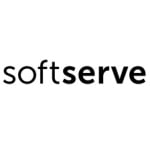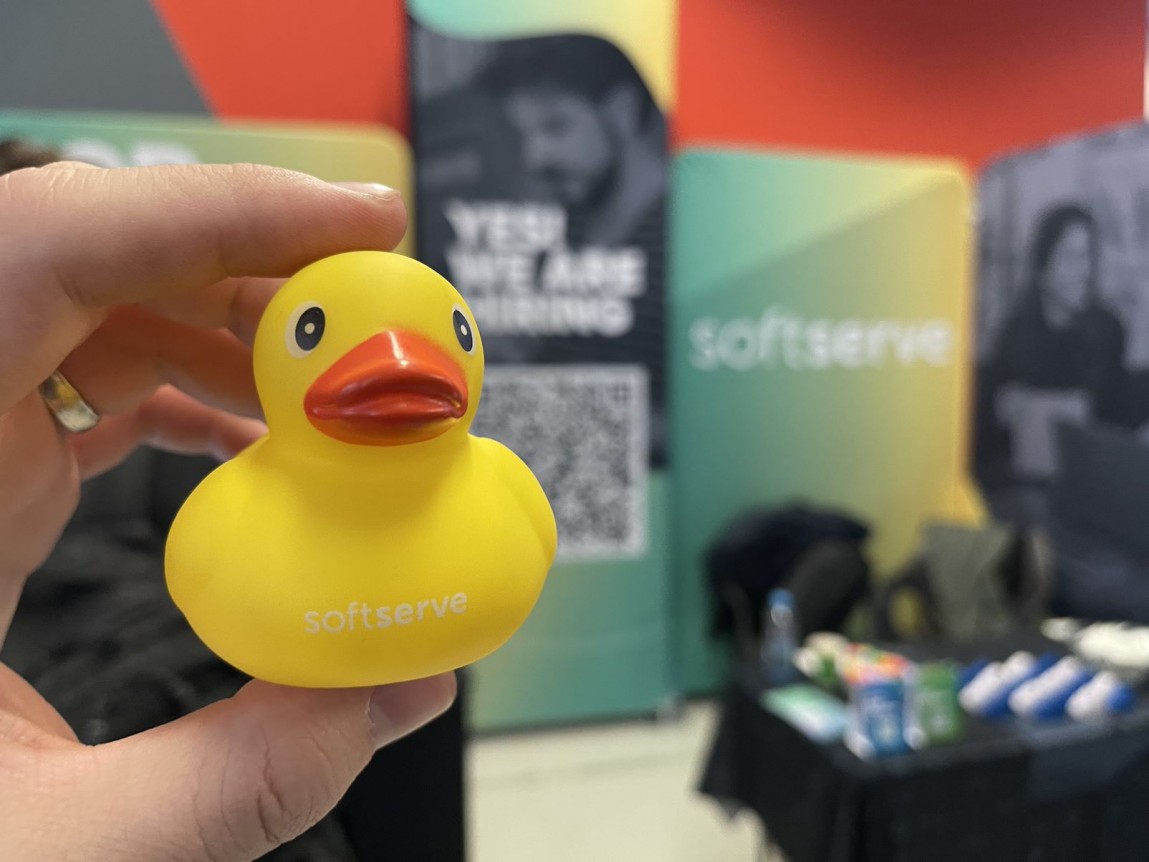
Big Data has rapidly become one of the most critical aspects of our digital society. With the exponential growth of data generated by businesses, consumers, and connected devices, the ability to harness and analyze this vast information has become a cornerstone of modern decision-making. Big Data enables organizations to uncover patterns, predict trends, and optimize operations in ways that were previously unimaginable. No wonder data jobs are expected to be among the fastest-growing occupations.
How to switch to Big Data? This article is specifically tailored for those looking to transition into the Big Data space. We’ll discuss why this career shift is important, outline the key skills and knowledge areas you’ll need to acquire, and provide actionable steps to help you successfully navigate your retraining journey into Big Data engineering.
My name is Roman, and I am a Big Data Engineer at SoftServe. In this article, I’ll describe the path of Retraining from a non-IT field to Big Data Engineering. For myself, this journey began when I joined SoftServe as a Trainee, where I went through the Big Data Engineer Retraining Program, which equipped me with the necessary skills to succeed in the Big Data space.
What is Big Data
Big Data refers to extremely large and complex datasets that traditional data processing software cannot effectively manage or analyze. These datasets can come from a variety of sources, including social media, sensors, transactions, and more. Big Data is characterized by the Three Vs: Volume (the massive amount of data), Velocity (the speed at which data is generated and processed), and Variety (the different types of data, such as structured, unstructured, and semi-structured).
How to Start the Retraining Process
Starting a career transition into Big Data engineering can seem difficult, but with the right approach and resources, it is achievable. The first step in the retraining process is defining a clear plan. In this section, I'll guide you through the essential steps to begin your retraining journey, from assessing your current skills to building a strong portfolio that will help you stand out in the competitive Big Data landscape.
Big Data Engineering Roadmap
Navigating the path to becoming a Big Data Engineer can be complex, given the breadth of skills and knowledge required in this field. A well-defined roadmap is essential for guiding your journey through the intricacies of Big Data engineering. This chapter presents a comprehensive Big Data Engineering Roadmap designed to provide a clear, step-by-step path from foundational learning to advanced expertise.
We’ll outline the key milestones, including essential skills, tools, and technologies, and offer guidance on how to progressively build your competence in each area. By following this roadmap, you can systematically develop the expertise needed to excel in the world of Big Data and position yourself for a successful career in this exciting and rapidly growing field.

Retraining to become a Big Data Engineer is a structured process that requires careful planning and persistence. Here are the main steps to guide you through your retraining process:
1. Identify Your Learning Objectives
Define clear goals: determine what you want to achieve through your retraining, such as mastering specific Big Data technologies, earning certifications, or gaining hands-on experience.
Assess your current skills: evaluate your existing knowledge and skills to identify gaps that need to be addressed.
2. Select a Learning Path
Choose the right program: research and select a retraining program that aligns with your goals, whether it’s an online course, boot camp, or degree program.
Focus on core concepts: ensure the program covers essential Big Data topics such as data warehousing, ETL processes, and distributed computing.
3. Build Technical Proficiency
Learn programming languages: gain proficiency in languages commonly used in Big Data, such as Python, Java, or Scala.
Master Big Data tools: get hands-on experience with key tools and technologies like Hadoop, Spark, and NoSQL databases.
4. Gain Practical Experience
Work on real-world projects: apply your knowledge through practical projects or internships to build a portfolio that showcases your skills.
Participate in industry challenges: engage in competitions or contribute to open-source projects to gain additional experience.
5. Develop a Strong Portfolio
Document your work: create a portfolio that highlights your projects, including detailed explanations of your contributions and the technologies used. You can create your own website, but the recommended option is to have a GitHub account where you can store each project in proper repositories. You can follow this page for the GitHub portfolio creation guide.
Showcase your achievements: include any certifications or accolades you’ve earned during your retraining.
6. Network and Connect
Join professional communities: engage with online forums, attend industry events, and connect with Big Data professionals to build a network and stay informed about industry trends. You can start here by attending conferences in your area and participating in Hackathons that are organized for juniors. Usually, universities organize such events. Also, you can follow popular Big Data groups on LinkedIn; a couple of examples are here and here.
Seek mentorship: find mentors who can provide guidance, advice, and support throughout your retraining process.
7. Prepare for Job Search
Update your resume: tailor your resume to highlight your newly acquired skills, certifications, and practical experience.
Practice interview skills: prepare for technical interviews by reviewing common Big Data interview questions and conducting mock interviews.
8. Stay Persistent and Adapt
Maintain consistency: stay committed to your learning schedule and regularly review and practice your skills.
Adapt to change: be flexible and willing to adjust your learning path based on new developments or feedback from the industry.
By following these steps and staying dedicated to your retraining process, you’ll be well-prepared to embark on a successful career as a Big Data Engineer.
Big Data Learning Path
This learning path will guide you through the key skills and tools needed to become a data engineer, highlighting essential concepts and practical steps.

1. Programming Skills
A data engineer must be proficient in programming to handle data manipulation, querying, and automation. Python is crucial for data manipulation and scripting, while SQL is vital for querying relational databases. Bash scripting is useful for automating tasks in Unix-based systems.
Resources:
LeetCode
Python Tutorial (w3schools.com)
Python Tutorial | Learn Python Programming Language (2024) (geeksforgeeks.org)
2. Databases
Data engineers need a solid understanding of both relational and non-relational databases. Relational databases (SQL) use structured data, and you should learn how to design and optimize them for performance. NoSQL databases handle unstructured data and are often used for large-scale distributed applications.
Resources:
SQL Tutorial (w3schools.com)
SQL online courses | LearnSQL.com
Database Fundamentals | Microsoft Learn
3. Data Warehousing and ETL
Data engineers design data warehouses to store large volumes of data efficiently and use ETL pipelines to extract, transform, and load data into these warehouses. Mastering ETL processes and orchestrating data workflows ensures data moves smoothly across systems.
Resources:
What is ETL (Extract, Transform, Load)? | IBM
ETL Process: From Scratch to Data Warehouse | Toptal®
4. Big Data Frameworks
Big Data frameworks like Hadoop and Spark allow data engineers to process massive datasets using distributed systems. Apache Hadoop is used for batch processing, while Apache Spark provides in-memory processing, enabling faster analytics. Stream processing frameworks like Kafka handle real-time data streams.
Resources:
Top 7 Big Data Frameworks in 2024 - GeeksforGeeks
Hadoop, Storm, Samza, Spark, and Flink: Big Data Frameworks Compared | DigitalOcean
5. Cloud Platforms
Cloud platforms offer scalable storage and computing for data engineering solutions. AWS, Google Cloud, and Azure provide services for managing and processing big data. Familiarize yourself with cloud storage (S3, BigQuery) and cloud-based data processing tools (Redshift, Dataproc).
Resources:
Cloud Computing Training & Classes - Training and Certification - AWS (amazon.com)
Google Cloud Courses and Training | Google Cloud
Training for Azure | Microsoft Learn
6. Data Integration and Orchestration
Data engineers are responsible for integrating data from multiple sources and orchestrating complex workflows. Tools like Apache Airflow automate and schedule data ingestion, transformation, and storage processes. These tools ensure the efficient movement and handling of data.
Resources:
What is Data Orchestration: Examples, Benefits, & Tools | Airbyte
What Is Data Integration? | IBM
What is Data Orchestration: Benefits, Challenges & Framework (rivery.io)
7. Infrastructure and Deployment
Data engineers need to deploy scalable, efficient, and reproducible environments. Containerization (with Docker) ensures that applications run consistently across different environments, and Kubernetes automates deployment, scaling, and operations of containers. Infrastructure as Code (IaC) tools like Terraform automate the provisioning of infrastructure.
Resources:
Infrastructure as Code - Cloud Adoption Framework | Microsoft Learn
Infrastructure as Code (IaC): The Complete Beginner’s Guide – BMC Software | Blogs
What is Cloud Infrastructure? - Cloud Computing Infrastructure Explained - AWS (amazon.com)
8. Data Governance and Security
Data governance ensures the quality, security, and compliance of data. Engineers must enforce policies that protect sensitive information and ensure compliance with regulations like GDPR. Data lineage tools track the flow of data to ensure integrity and transparency.
Resources:
What Is Data Governance? A Comprehensive Guide | Databricks
What is Data Governance? | IBM
What is Data Governance | Frameworks, Tools & Best Practices | Imperva
Company Retraining Program
While there are numerous opportunities for advancing your career in Big Data, finding companies that offer dedicated retraining programs, internships, or similar opportunities can be quite challenging.
However, some companies and specialized training providers do offer programs designed to bridge the gap between different fields and Big Data engineering. It’s important to actively seek out these rare opportunities, network within the industry, and explore alternative avenues such as online courses, boot camps, and industry certifications to supplement your learning and gain practical experience.
For me, this chance was the retraining program at SoftServe. I started almost 2 years ago, and recently just got promoted as a Middle Big Data Engineer. This only proves that with focus, a good plan, and the right support it’s never too late to pursue a new career.
Online Retraining Programs – how to train yourself for a new career
In today's rapidly evolving job market, online Retraining Programs have emerged as a vital resource for those seeking to pivot into new fields, particularly in the dynamic world of Big Data. These programs offer a flexible and accessible way to gain the necessary skills and knowledge without the constraints of traditional education.
Whether you are transitioning from a different engineering discipline or embarking on a career change, online retraining programs provide a comprehensive curriculum, hands-on projects, and valuable industry insights to prepare you for a successful career as a Big Data Engineer.
In this chapter, we will explore the benefits of online retraining programs, discuss key features to look for and guide you through selecting a program that aligns with your career goals and learning style.
Choose a Cloud Provider
Choosing the right cloud provider can be a daunting task, especially for those new to the field of Big Data engineering. With multiple major players in the market, each offering a range of services and features, the decision-making process can be overwhelming. However, selecting a cloud provider and committing to it is a crucial step in your retraining journey.

This chapter will help demystify the process by highlighting the key factors to consider when choosing a cloud provider and why it’s important to focus on one provider throughout your retraining program. By doing so, you’ll gain a deeper understanding of the chosen platform, master its tools and services, and build a strong foundation that will support your development as a proficient Big Data Engineer.
Google – GCP
Google Cloud Platform (GCP) is a powerful choice for those retraining to become Big Data Engineers, offering a suite of advanced tools and resources designed to support your learning and professional growth. GCP is known for its user-friendly interface and strong emphasis on data analytics and machine learning, providing a solid foundation for mastering Big Data technologies.
While the learning curve may vary, GCP offers extensive training resources, including detailed documentation, online courses, and hands-on labs to help you navigate its features. The platform's certifications are well-regarded in the industry, offering a clear path to validating your skills and advancing your career in Big Data engineering. By engaging with GCP’s educational offerings and certification programs, you'll gain the expertise and confidence needed to succeed in this dynamic field.
You can begin your GCP learning process with theoretical knowledge here and practical experience here. For GCP certifications visit this page.
Amazon – AWS
Amazon Web Services (AWS) is a powerful platform for those retraining as Big Data Engineers, offering a comprehensive and widely recognized ecosystem. One of the key advantages of AWS is its strong support for learning and professional development, including a range of well-structured certifications that can validate your skills and enhance your career prospects.
The learning curve with AWS can be steep due to its extensive range of services and features, but the platform provides abundant resources such as detailed documentation, online courses, and practical labs to support your journey. By engaging with AWS's robust training programs and certifications, you'll be well-equipped to tackle the complexities of Big Data engineering and stand out in the competitive job market.
You can begin your AWS learning process with theoretical knowledge here and practical experience here. For AWS certifications visit this page or explore our SoftServe article 'A journey through all AWS certifications'.
Microsoft – Azure
Microsoft Azure is a powerful platform for those retraining to become Big Data Engineers, offering a comprehensive set of tools and resources to support your learning journey. Azure’s strength lies in its well-defined learning paths and certifications, which provide clear benchmarks for mastering essential skills and validating your expertise.
While the learning curve can be significant due to Azure’s broad array of services and features, the platform offers extensive documentation, online courses, and hands-on labs to facilitate your education. By leveraging Azure’s structured training programs and obtaining relevant certifications, you'll gain the knowledge and credibility needed to excel in the Big Data field and advance your career.
You can begin your Azure learning process with theoretical knowledge here and practical experience, here. For Azure certifications visit this page.
More Learning Resources
Udemy
Udemy offers a wide array of Big Data courses designed to cater to various learning styles and needs. Courses are structured with pre-recorded video lectures, quizzes, and practical assignments, allowing you to learn at your own pace and apply concepts through hands-on exercises. These courses are created by industry professionals and experts, with pricing typically ranging from $10 to $200, depending on the course and any ongoing promotions.
The platform’s self-paced format and practical focus make it a flexible and accessible option for gaining new skills, although it’s important to review course descriptions and ratings to ensure the content aligns with your retraining goals.

Udacity provides a robust platform for retraining as a Big Data Engineer, featuring specialized Nanodegree programs that offer a comprehensive and structured learning experience. These programs are crafted by industry experts and focus on practical, hands-on projects designed to build real-world skills.
Udacity’s courses are delivered through a combination of video lectures, interactive quizzes, and project-based assignments, ensuring an engaging and applied learning experience. Nanodegree programs typically range from $200 to $400 per month, with the cost reflecting the depth of the curriculum and personalized support provided. The platform’s emphasis on project-based learning and mentor support offers a clear path to mastering Big Data technologies and advancing your career.

Coursera offers a diverse selection of Big Data courses and specializations that cater to different levels of expertise and learning preferences. Courses are typically delivered through a mix of video lectures, interactive quizzes, and hands-on projects, providing a well-rounded learning experience. Many of Coursera’s offerings are created in collaboration with top universities and industry leaders, ensuring high-quality content and up-to-date industry practices. The pricing varies widely, with individual courses often costing between $30 and $100, while specializations and professional certificates may range from $200 to $400 or more.
Coursera’s structured programs, combined with its flexible learning pace and access to expert instructors, make it an effective platform for gaining in-depth knowledge and skills in Big Data engineering.

EdX offers a range of Big Data courses and MicroMasters programs designed to provide in-depth knowledge and practical skills. Courses on edX are delivered through video lectures, interactive assignments, and real-world projects, often created by top universities and leading industry professionals.
The platform provides a structured learning experience, with many programs offering a verified certificate upon completion. Pricing for individual courses typically ranges from $50 to $300, while more comprehensive programs like MicroMasters can cost between $600 and $1,200. EdX’s combination of academic rigor and practical application, along with flexible scheduling, makes it a valuable resource for those looking to advance their expertise in Big Data engineering.

Self-Retraining Program
Embarking on a self-retraining program to become a Big Data Engineer offers a wealth of resources at your disposal, including a multitude of books, online courses, and YouTube channels dedicated to various aspects of Big Data. These resources can be highly valuable in building your knowledge and skills at your own pace. However, self-retraining comes with its own set of challenges. There's a risk of overpaying for scattered resources or investing in materials that may not align with your learning goals.
Additionally, without a structured roadmap and community support, you might struggle with maintaining focus and motivation. To effectively navigate your self-retraining journey, it's crucial to carefully select resources that offer comprehensive coverage and to seek out communities or forums where you can exchange knowledge and gain support from fellow learners and professionals.
Ready to transform your career and dive into the world of Big Data engineering? Don’t hesitate to seize this opportunity!
*Author: ROMAN MURZAC | BIG DATA SOFTWARE ENGINEER



 Compare
Compare 

































